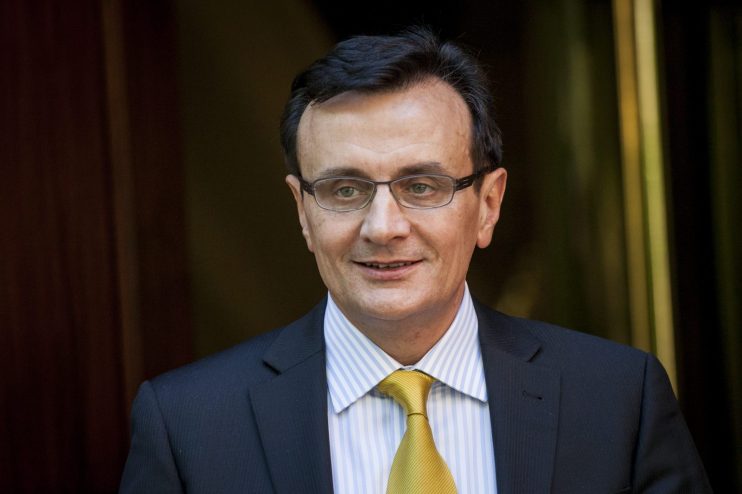Astrazeneca shareholders in row over chief executive’s £2.3m bonus hike

Astrazeneca shareholders have been plunged into a bitter row over plans to hike chief executive Pascal Soriot’s pay by £2.3m.
The French pharma boss has been praised for rolling out the company’s Covid-19 vaccine at cost price, as well as driving up its share price since he took over in 2012.
But major shareholders have clashed over plans to boost Soriot’s share bonus by £2.3m to £12m — a sum that could increase further if the firm’s share price rises.
This could take his total pay, including his £1.3m salary, to higher than the £15.4m he received last year.
Two top shareholders — Aviva Investors and Standard Life Aberdeen — have already voted to block the plans ahead of Astrazeneca’s annual meeting on Tuesday, the Mail on Sunday reported.
One said the bonus threatened to “tarnish” the company’s reputation after it garnered praise for manufacturing a vaccine at no profit.
But several other City funds said they would approve the plans, despite opposition from major shareholder advisory groups. ISS, Glass Lewis and Pirc have all recommended voting down the proposals.
More than half of the company’s shareholders would have to vote against the policy for it to reconsider its plans.
Astrazeneca is set to cut Soriot’s pension benefits from 20 per cent to 11 per cent of his salary, in line with the rest of the company’s workforce.
But his share award will rise from 550 per cent to 650 per cent of his salary — the second consecutive rise. The £8.6m pot bonus would rise if the firm’s share price rises.
Astrazeneca will increase his annual bonus from 200 per cent of salary to 250 per cent, or roughly £3.3m.
Soriot, a veteran pharmaceutical executive, earned £15.4m last year and has pocketed nearly £90m since he joined the British company nine years ago.
But the latest plans have pitted major City funds against each other in a major row over pay.
“We think Pascal has done a fantastic job taking Astrazeneca from an uncertain future to one that has massive growth, so we think he’s great, but the magnitude of the numbers they’re looking at in terms of percentages is quite high,” one told the Mail on Sunday.
Astrazeneca has come under criticism since its rollout of the life-saving vaccine, with EU politicians complaining over the speed and fairness of the delivery.
It has also faced warnings over rare blood clots, leading some countries to ban the jab altogether.
Astrazeneca said it had delivered a return of nearly 300 per cent for shareholders over the last eight years.
“The board wants to ensure that our remuneration policy keeps driving a performance in line with the ambitious expectations of our shareholders and other stakeholders,” a spokesperson said.